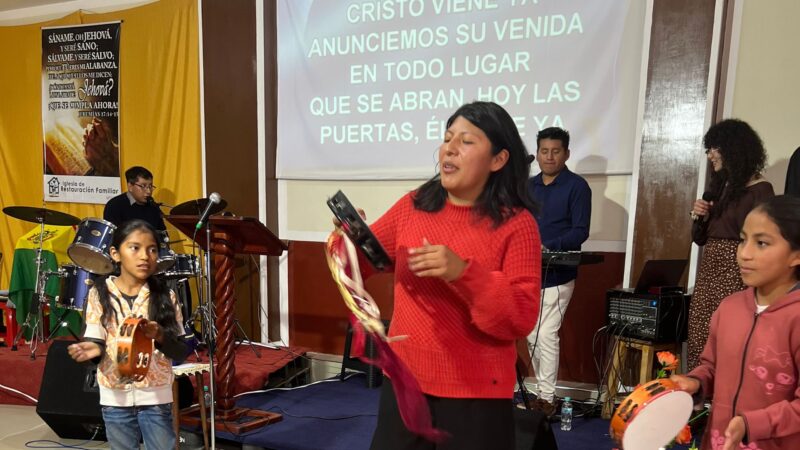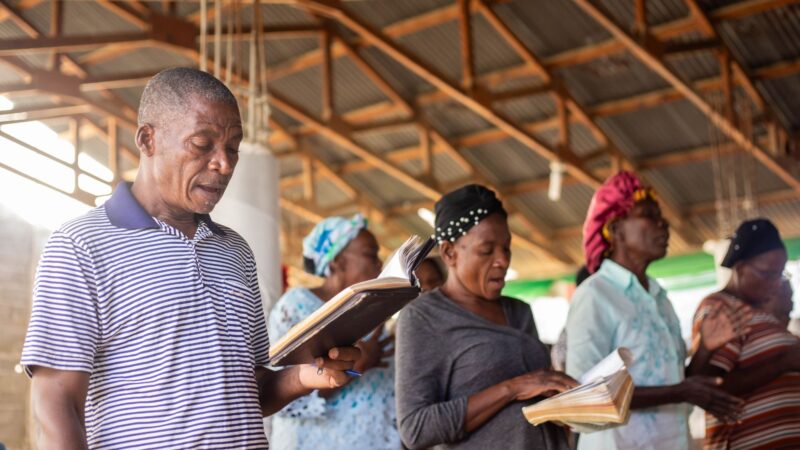Have you ever tried to explain the concept of “missions” to someone else? Is it equal parts evangelism and discipleship? Are all Christians missionaries? Where exactly do “missions” take place? Are you involved in missions without knowing it? Being a seminary-trained, full-time church planting missionary in another country, you would think that the answer to “what is missions” would be right at the tip of my tongue. Still, unfortunately, I have often struggled with explaining the concept to others as well.
“Missions” is a divided term these days.
If you asked ten different church folks to describe “missions,” you would certainly get a handful of answers. Are missions only going to a faraway place and a people of another culture? Are missions providing food to the needy? Support for the homeless? Maybe it’s sharing the Gospel with your neighbor who does not go to church? Which is it? Is it all of them?
I know what you might be thinking – The Great Commission answers these questions right out, doesn’t it? “
Go therefore and make disciples of all nations, baptizing them in the name of the Father and the Son and the Holy Spirit, teaching them to observe all that I have commanded you. And behold, I am with you always, to the end of the age.”
It is kind of the John 3:16 of mission verses, but did you know that a 2018 Barna study found that 51% of churchgoers had no idea what the Great Commission even was, and that of those who said they knew it, 49% had no idea what it meant. So clearly, there is some miscommunication regarding the who, what, when, where, and why of missions.
The first thing that we must start with when unpacking this subject is a concept referred to as the Missio Dei or The Mission of God.
This is a reference to the broader reconciliatory work of God in the world and the mission that He started back in the Garden of Eden. The Missio Dei is a broad umbrella that encompasses all other missions’ efforts.
God has created humanity for worship, and His mission is to reconcile the world to Himself. Thankfully, as His children, He invites us to take part in this mission, but the success of His work is not dependent on our involvement. Imagine a parent cutting the grass or shoveling a driveway of snow. Although that parent can complete the task alone, they invite their children out to be a part of what they are doing, and it becomes a joyous experience for both parties. Thus, God invites us into His mission, and we get to be a part of His glorious project.
When we recognize that missions are important to God, we can understand that it should be important to us.
Our God is a missionary God. He sent His Son into the world to make a path for reconciliation, He sent His Spirit to comfort, instruct, and guide, but before all of that, God the Father became the first missionary by bringing the Good News to Adam and Eve after they had sinned. Genesis 3:15 is referred to as The Proto-Evangelium or The First Good News. It is the first place that we see a glimpse into God’s plan for reconciliation, and we also see the heart of God to address the brokenness of His children with a plan to make things right again.
So how do we factor into all of this?
I find it helpful to consider two sub-categories that sit side-by-side under the banner of the Missio-Dei. The first category is the “sent out” ones. We’ve all heard people say something like “everyone is a missionary,” and while it sounds good on the surface, it is not entirely accurate. Acts 13 gives us an excellent example of this practice of being “called out.”
From a group of prophets and teachers meeting at the church at Antioch, Barnabas and Saul are called by the Holy Spirit to “go out” and proclaim the word of God. It reads: While they were worshipping the Lord and fasting, the Holy Spirit said, “Set apart for me Barnabas and Saul for the work to which I have called them.” Then after fasting and praying, they laid their hands on them and sent them off. The following section tells of how Barnabas and Saul traveled to Cyprus and began proclaiming the Word of God in the synagogues there.
Some are “called” and set apart specifically for the work that God has for them.
These would be capital “M” missionaries. Within our churches, we tend to put these people up on a pedestal and consider them to be some kind of “super-Christians,” which can be dangerous to the idea of missions in general. I can remember many times introducing myself at a church, and when getting to the “I’m a Missionary” part of the conversation, everything from their eyebrows to their inflexion and tone went in an upward direction. “Oh! You’re a missionary!” Bang, you are suddenly in a different category.
The trouble with doing this is that it pushes “missions” into an inaccessible part of our brains and suddenly becomes something that someone else does. It is unfamiliar, and so, therefore, we count ourselves out of the task. Unfortunately, in doing so, we do a disservice to the call of missions in our own lives.
So, what about the rest of the people, the ones who are not “called out?”
This is the group that most of us probably are a part of. I stress “probably” because we should never close that door to what God might call us to. For example, I never thought God would call me to a life of full-time ministry, yet I am writing these words about the experience.
This second category I refer to as the “stay home” ones.
This group is those that stay in their regional area rather than being sent somewhere else. Staying at home, however, does not let us off the hook of being missional. While this second category may not be capital “M” missionaries (sent out ones), we are all called to live missional lives – lives lived with a missional intention.
It is this word “intention” that becomes so vital because unless we are intentional about sharing our faith, meeting with others, celebrating the greatness of God in specific ways, then we run the risk of simply being another “nice person.” I am not suggesting that everything we do needs to have an agenda, but when it comes to missions, it is essential that we not simply rely on our kind deeds to be a suitable conveyor of the Gospel. It needs words as well. So, it is with intention that we tell others about what God is doing in our lives, be active in prayer for and with others, and celebrate the Gospel and how it changed our lives.
In closing, regardless of which category you find yourself a part of during any given portion of your life, the fact is that we all should be living in a missional mindset.
Because God is a missional God and because He invites us to take part in what He’s doing, we should always be open to the idea that He may call us to some form of missional action.
Being intentional might manifest itself in sharing your testimony of what God has done in your life, sharing the Gospel with someone you know, or praying with a colleague who is going through something difficult. On the other hand, it could be that God calls you to be sent out and leave everything and everyone you know and be His representative in another place. Regardless of the action, at its heart is an intentional communication of God’s greatness in our lives. The motivation is to highlight God and what He has done and know God better through this sharing.
Some will be called to go, some called to remain, but all are called to be intentional about taking part in God’s mission.
Find out more about Bright Hope’s work by reading these blogs:
When Hope for Today Makes Tomorrow Possible
Hope for Tomorrow: Sometimes Poverty Alleviation is Simple
Hope for Eternity: Jesus Cares for the Poor
Bright Hope, a Holistic Ministry Meeting the Needs of the Poor
Grow. Change. Impact: The Power of Mutual Transformation




